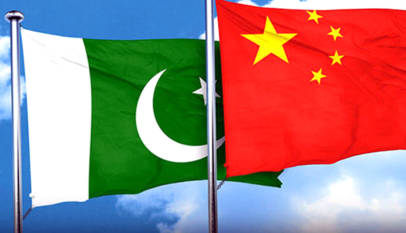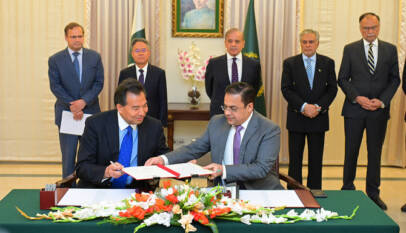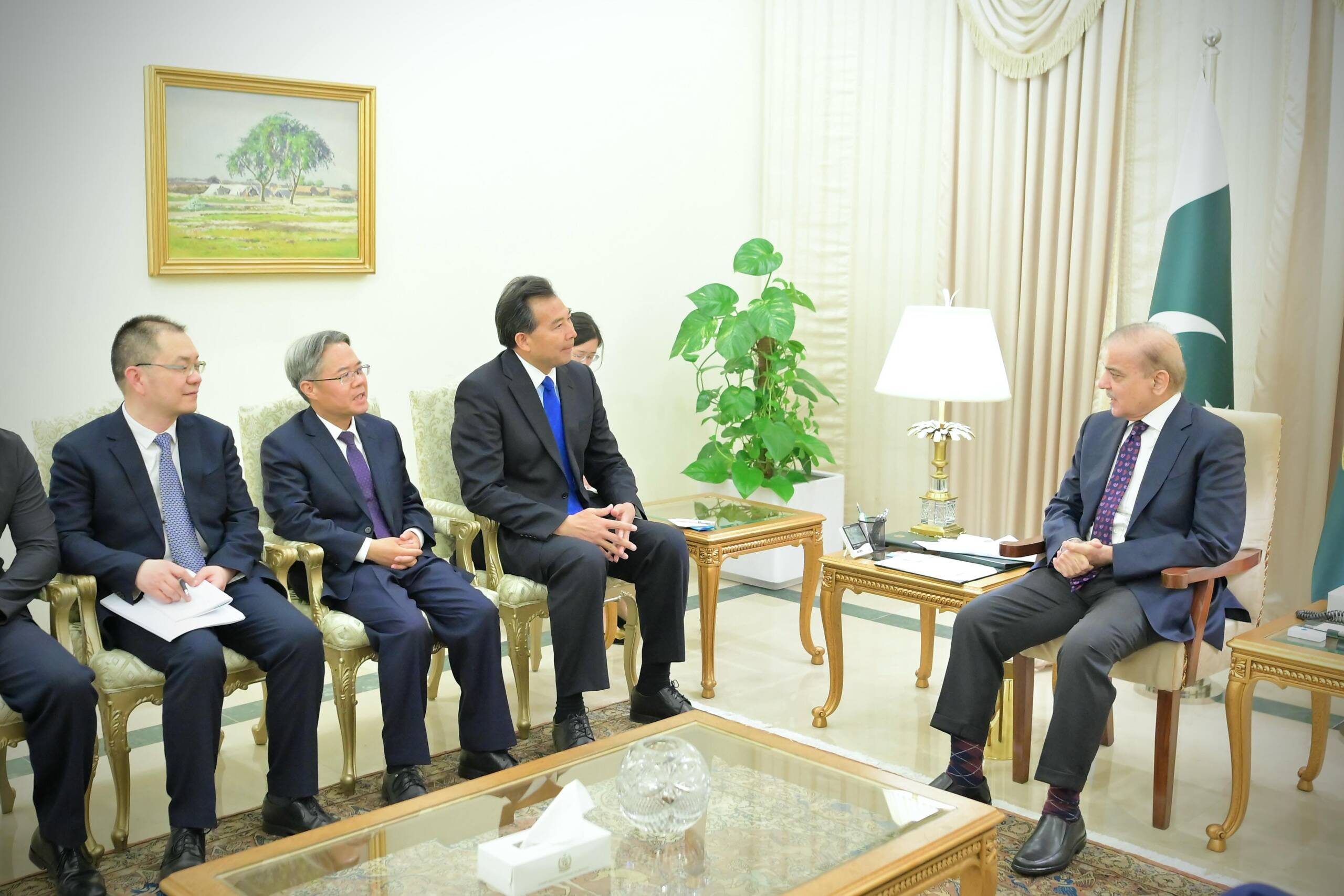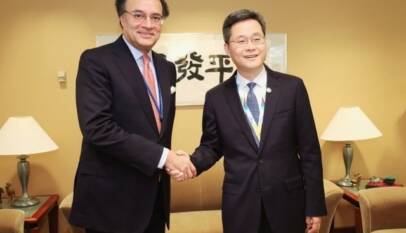CPEC enjoys political consensus in Pakistan
The year 2020 has proved to be a year in which the world witnessed a deepened political consensus in Pakistan. CPEC is now seen above party lines. The two events that stamped on the CPEC consensus are the second Conference of the CPEC Political Parties Joint Consultation Mechanism (JCM) 2020 organized by IDCPC and the Pakistan-China Institute (PCI), and “The Role of Parliament in Enhancing Investment, Trade, and People to People Exchange under CPEC” jointly organized by the CPEC Parliamentary Committee National Assembly Secretariat and KPBOIT. The two events had participation from both the treasury and opposition benches and all the participants hailed CPEC as a game-changer and transformational project. Senator Mushahid Hussain during the second JCM said that CPEC remained uninterrupted even during a global pandemic
2020 has become a watershed year in deepening parliamentary consensus on CPEC. Along with a number of meetings, two major events have brought together all democratic and political key players in the national assembly and senate on a unified agenda; that the future of Pakistan is centred on CPEC trade and investment.
Consensus made its mark first at the time when the International Department of the Communist Party of China (IDCPC) and the Pakistan-China Institute (PCI) played their pivotal role by successfully holding the second Conference of the CPEC Political Parties Joint Consultation Mechanism (JCM) 2020. The second time, it mesmerised the world at a regional dialogue titled “The Role of Parliament in Enhancing Investment, Trade and People to People Exchange under CPEC” jointly organised by the CPEC Parliamentary Committee National Assembly Secretariat and the Khyber Pakhtunkhwa Board of Investment & Trade.
These two events give credence to the fact that mainstream political leadership in both houses, lower and upper, ride tandem mentally and physically on the primacy and future of CPEC.
On parliamentary oneness, Chief Minister Khyber Pakhtunkhwa Mahmood Khan termed CPEC a golden opportunity to put this province on the path of rapid development and said that the Rashakai Special Economic Zone, a flagship project under CPEC was matured and ready for inauguration, adding that hopefully Prime Minister Imran Khan himself would perform the ground breaking of this important project very soon.
“Due to the efforts of the incumbent provincial government, three mega projects of motorways and two projects of energy have been included in the CPEC portfolio whereas efforts are also underway to include other important projects in CPEC. “The matter regarding inclusion of Chashma Right Bank Lift Canal Project in CPEC has been discussed in the last meeting of Joint Cooperation Committee and hopefully this important project would also be included in the CPEC portfolio in the upcoming meeting of JCC”, he said.
Speaker National Assembly Asad Qaiser branded CPEC as a game changer project for the province. He urged politicians, elected public representatives and the bureaucracy to play their vital role to get the maximum benefits of this golden opportunity and put this province on the track of prosperity and development. Underlining the need to have mutual trade & economic relations with Afghanistan, Central Asia and other countries, Asad Qaiser revealed that efforts were afoot to promote bilateral trade relations with neighbour country, Afghanistan.
Chief Executive Officer, the KP Board of Investment & Trade, Hassan Daud shed light on the objectives of the CPEC conference and highlighted the investment opportunities available in the key sectors that are available in the province.
Sher Ali Arbab, Member Parliamentary Committee on CPEC, Minister for Finance, Taimur Jhagra, MNA Ms Mehnaz Akbar, Special Assistant to the Chief Minister on Industries and Commerce, Abdul Karim Khan, Advisor to CM for Energy & Power, Mr Himayatullah Khan, Additional Chief Secretary, Mr Shakeel Qadir, CEO KP-Board of Investment & Trade, Hassan Daud Butt, Afghan Consul General, Najib Ullah Ahmedzai and Country Director Friedrich Ebert Stiftung (FES) Dr Jochen Hippler also addressed the Inaugural Session and shed light on investment, trade and people-to-people exchange under CPEC. During the session, three different groups were formed to have a panel discussion on trade, investment and industrial development, and tourism and people-to-people exchange under CPEC in KP.
A few weeks back, the conference of the CPEC Political Parties Joint Consultation Mechanism (JCM) created a big ripple by convincing the world to discern the political magnetism of CPEC. It unleashed a clear signal that the faith of provincial political forces and mainstream political parties—whether they are in opposition or in government—on CPEC is unfluctuating.
In spectacular materialisation of JCM, the role of the International Department of the Communist Party of China (IDCPC) and the Pakistan-China Institute (PCI) is commendable. When conspiracy theories ran amok, that the political vision of China and Pakistan were at odds, IDCPC and PCI played their pivotal role by successfully holding the second Conference of the CPEC Political Parties Joint Consultation Mechanism (JCM) 2020.
On the theme of “Working Together to Promote Economic Development and Improve People’s Lives Through High-Quality CPEC Cooperation”, President Xi Jingping said CPEC helped the two countries enhance their bilateral ties and political consensus. Xi, also General Secretary of the Communist Party of China Central Committee, made the remarks in a verbal message to Pakistani President Arif Alvi, who sent a congratulatory message to the opening of the second meeting of the CPEC Political Parties Joint Consultation Mechanism (JCM). JCM brought together nine political parties including Pakistan Tehreek-e-Insaf, the Pakistan Muslim League (Nawaz), the Pakistan People’s Party, the Balochistan Awami Party, the National Party, the Jamiat Ulema-e-Islam, the Awami National Party, the Jamaat-e-Islami and Pashtunkhwa Milli Awami Party, as well as leading officials from relevant government departments and representatives from the business communities of the two countries.
The first JCM was organised in Beijing in March 2019 and this JCM has now taken the shape of the institutional mechanism between the CPC and Pakistani political parties for CPEC coordination and communication. This online conference of nine political parties representing both the government and the opposition was the first of its kind in Pakistan that agreed to preserve, protect and promote CPEC, above party lines, since they all view CPEC as a “game changer and a guarantor of a better tomorrow for Pakistan’s 220 million people”.
National consensus on which all political parties stand united are not too many. Democracy, the Kashmir policy, the 1973 constitution and the nuclear power programme are some examples. In 2015, a new solid addition brimming with complete national consent has come to limelight. It is, undoubtedly, the China Pakistan Economic Corridor (CPEC).
Similar to others, all political parties whether in opposition or government, despite their deep-rooted disagreements, boast one agreement; that CPEC is the lifeline to Pakistan. Even the parliament, comprising both the lower and upper houses echoes with robust harmony and seamless unanimity on positive impacts of CPEC.
Senator Mushahid Hussain Syed, from the Pakistan Muslim League (Nawaz) and Chairman of Senate Committee on Foreign Affairs, who also is founding Chairman of PCI, congratulated China on successfully combating COVID-19 through timely measures, decisive leadership and a governance system based on excellent healthcare facilities as well as a people centred approach and thanked China for its support to Pakistan during the COVID-19 crisis. Moreover, he said that CPEC remains uninterrupted despite the pandemic and is connecting the less developed parts of Pakistan through the Western route. It has activated Gwadar port as the hub of regional connectivity including Afghan transit trade and connectivity with Central Asia. Lastly, he said that Pakistan fully supports China in the defence of its territorial integrity and sovereignty, rejects politicising of the pandemic, appreciates China’s positive role, and rejects the notion of a new cold war. At the end of the conference, a joint statement was adopted unanimously by all the participants, which criticised the ‘slander’ against CPEC and said the JCM would maintain ‘strategic communication’ and build consensus amongst political parties.
CPEC and Kazakhstan’s vital role in regional trade
The Republic of Kazakhstan has opened doors for the expansion of trade with Pakistan that …













